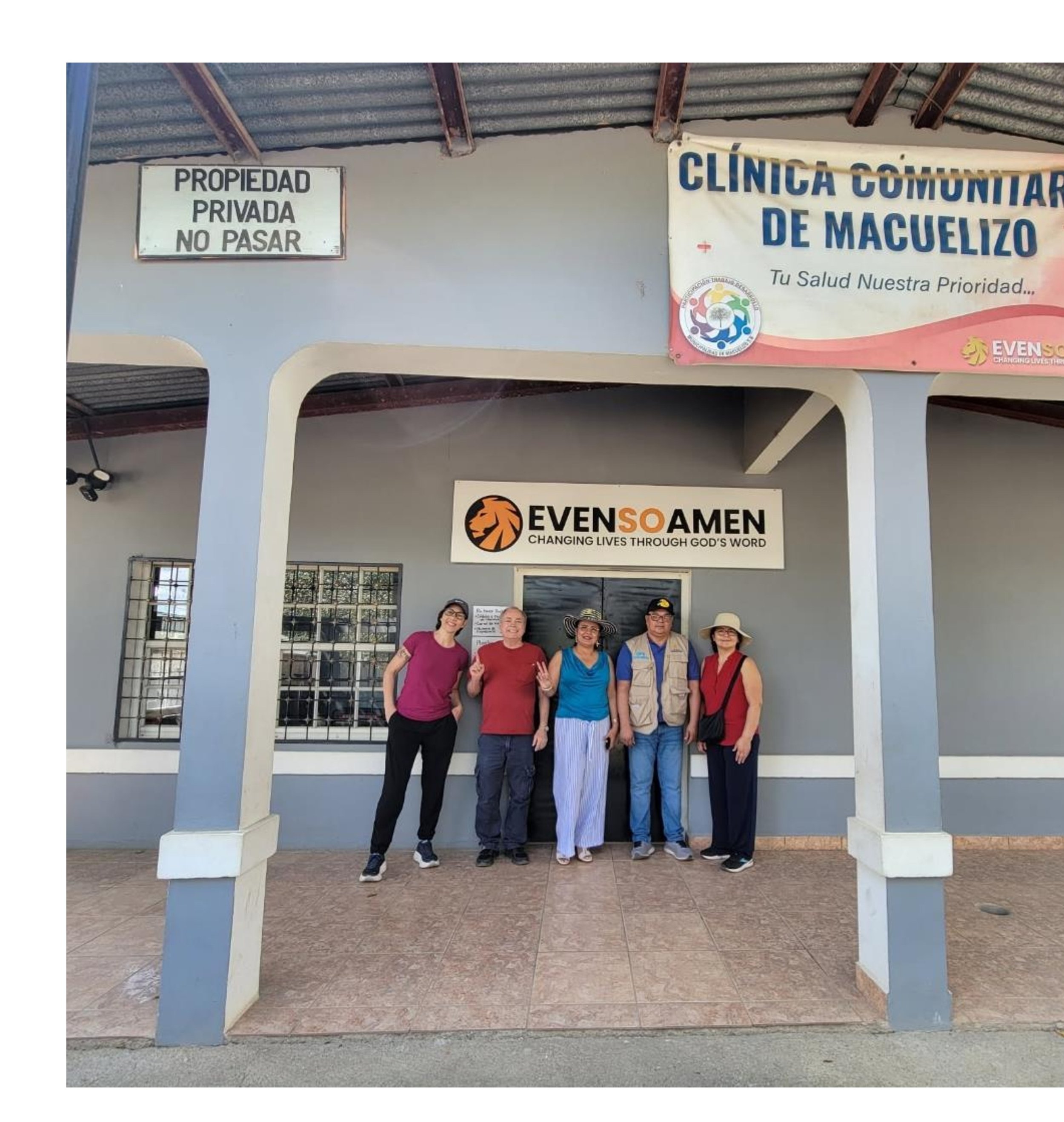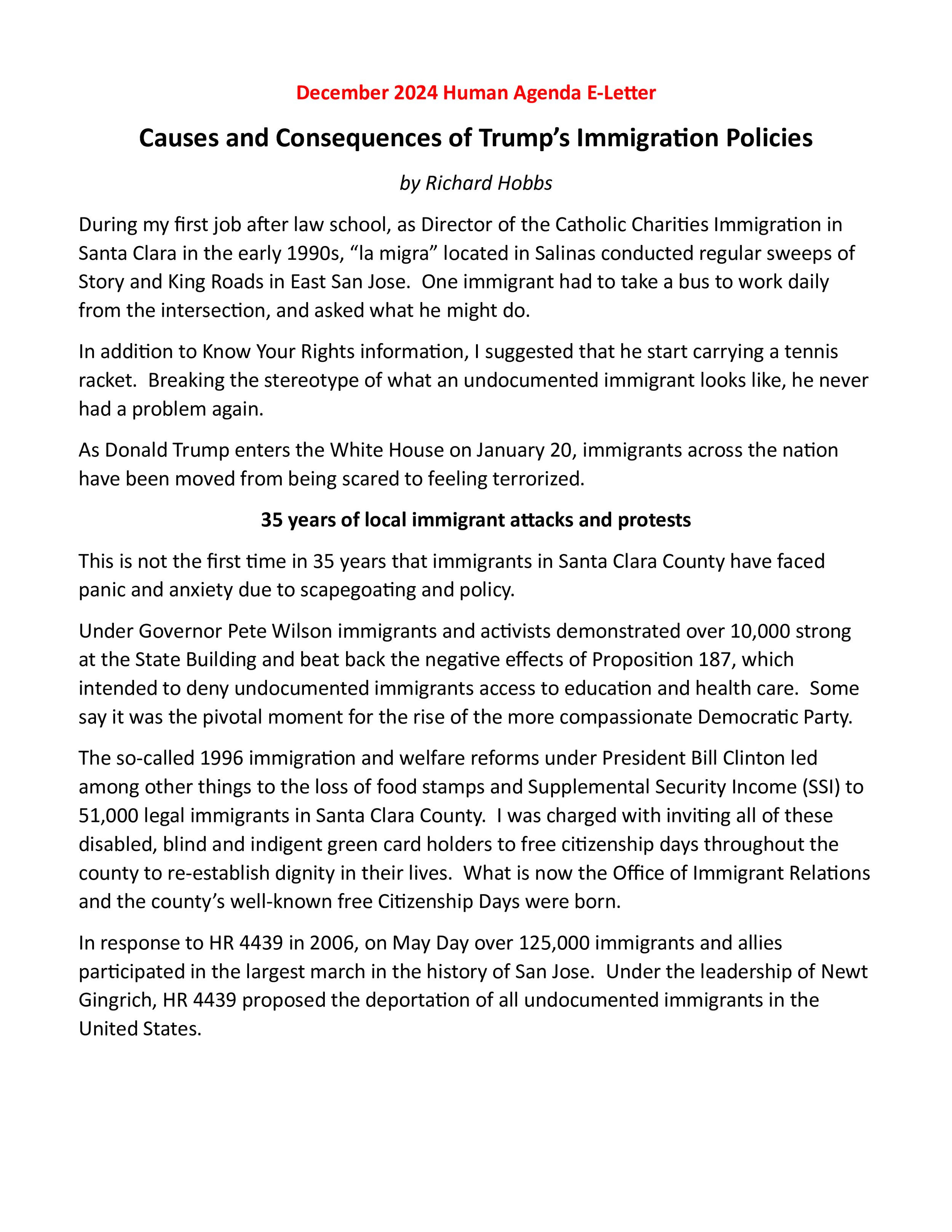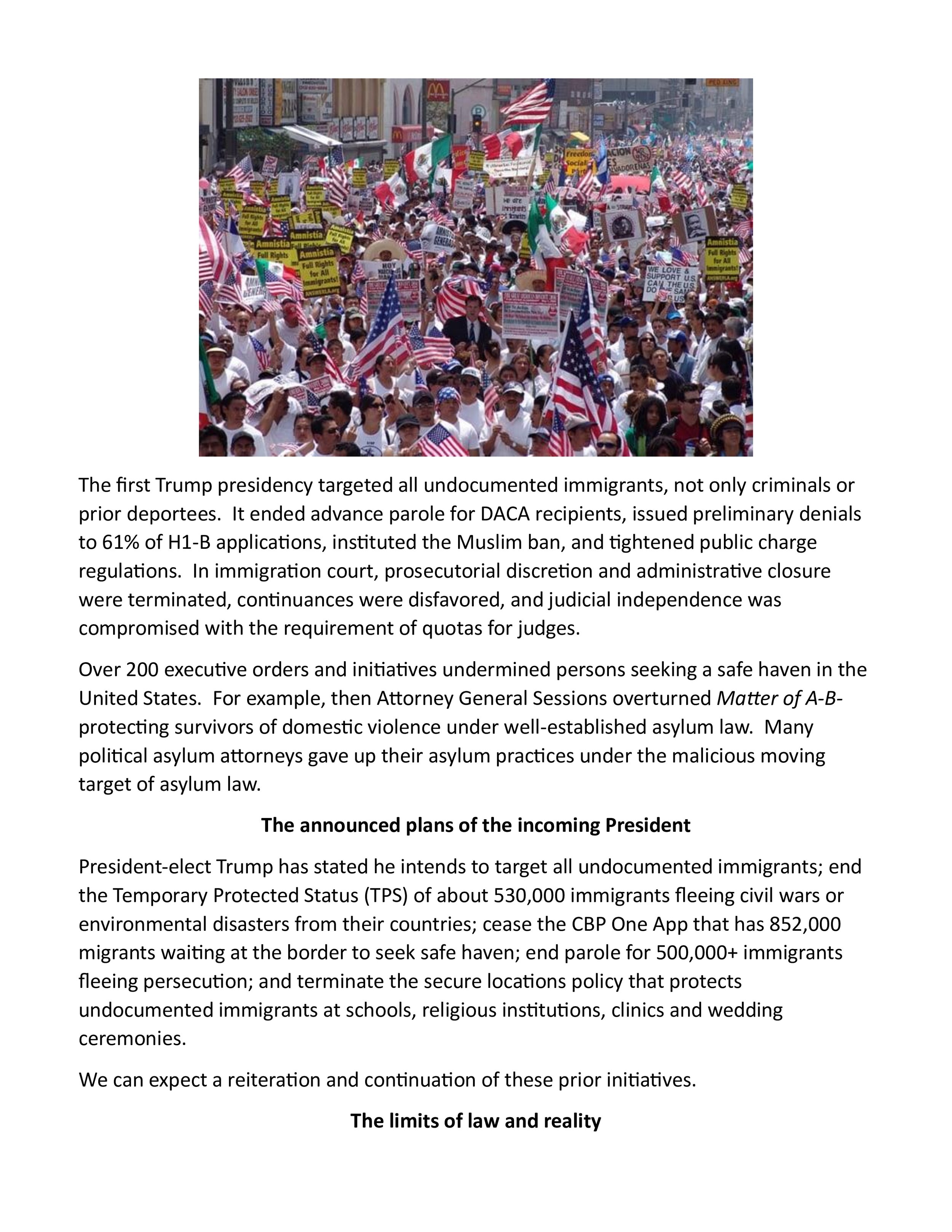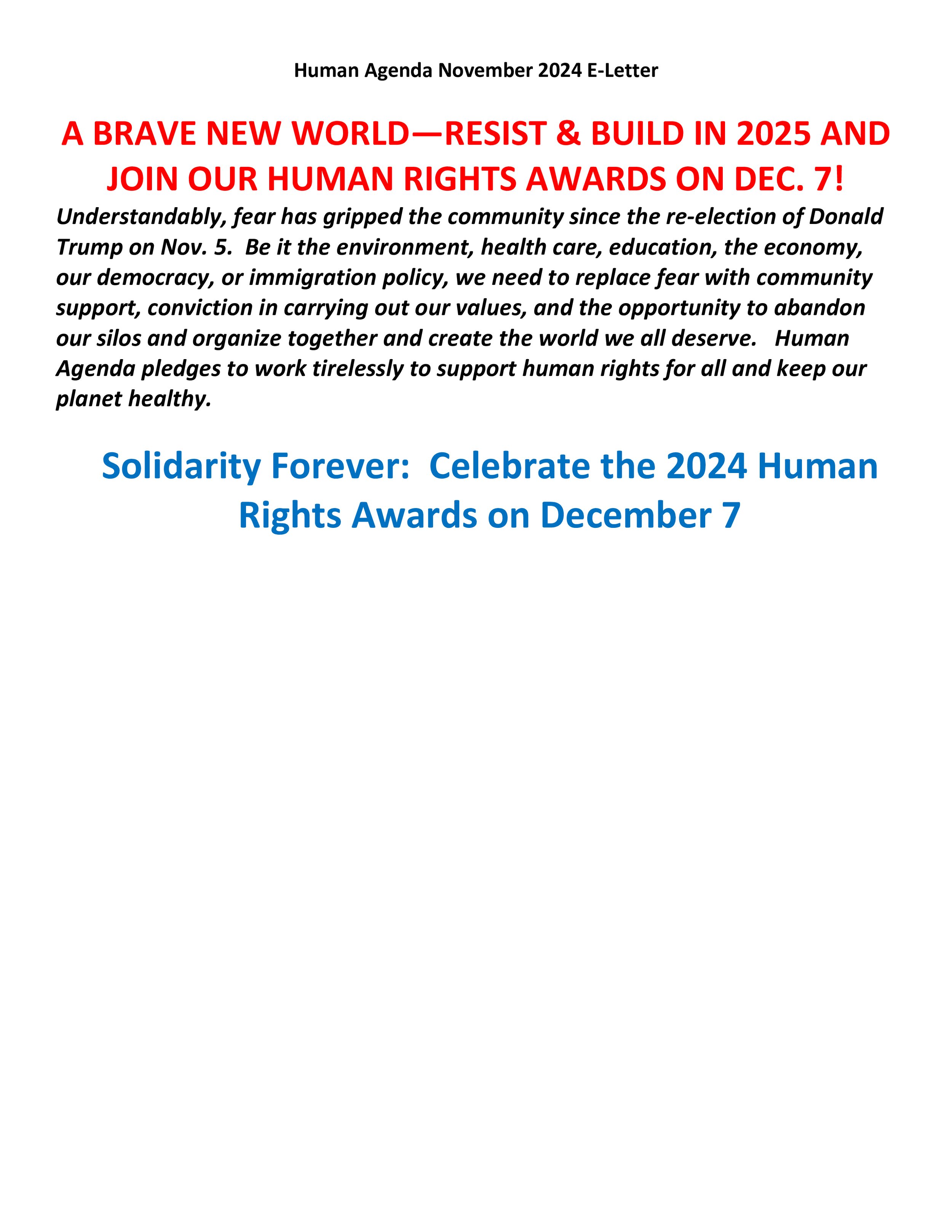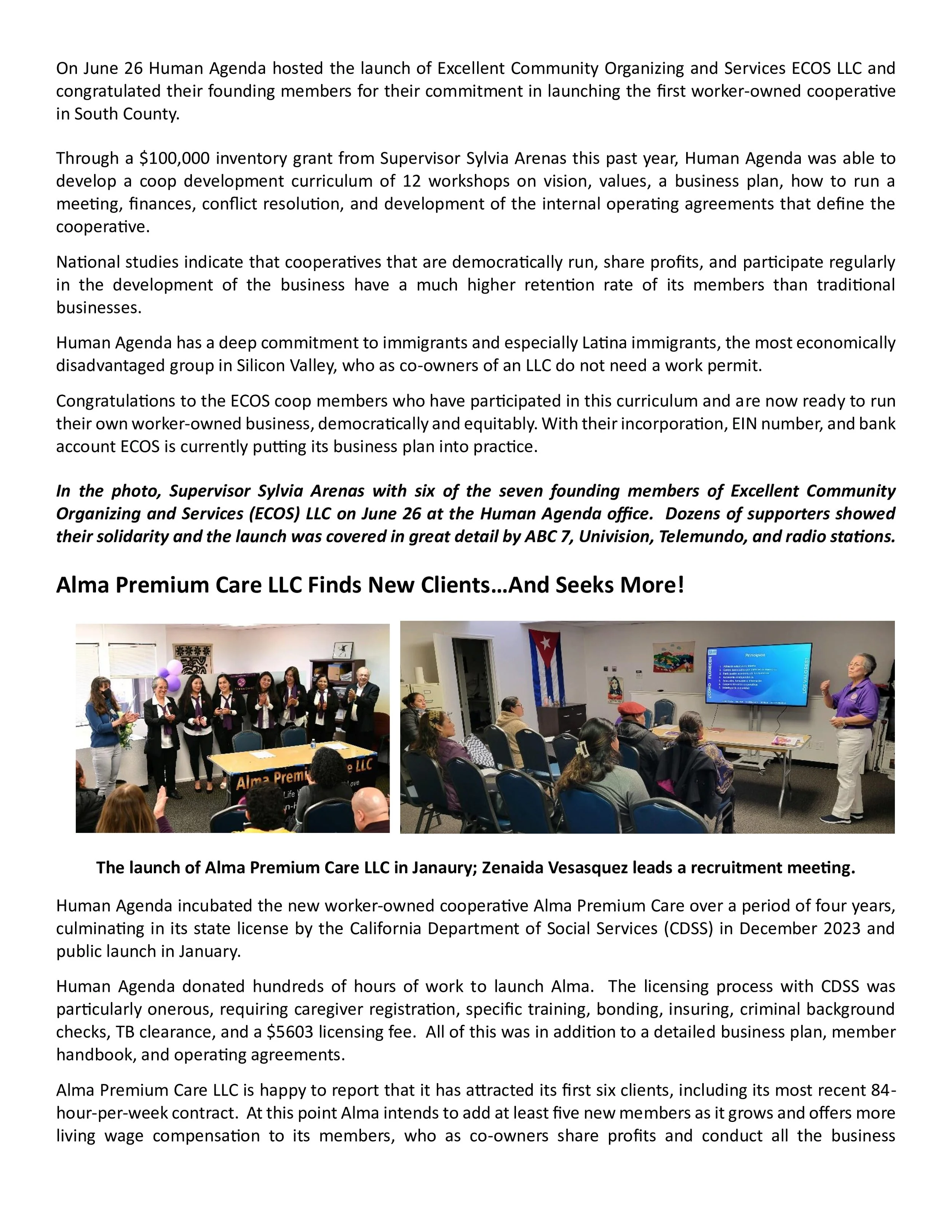Human Agenda November 2023 E-Letter
/1. Ash Kalra and Rebeca Almendariz to Moderate Dec. 9 Awards Banquet
Saturday, December 9 from 6 to 9 PM at the South Bay Labor Council. You can look forward to glowing introductions, incisive commentary, and holiday joy.
2. The Status of Human Rights: Keynoters Renee Saucedo and Will Armaline
The renowned immigrant rights activist and human rights professor and activist will provide a serious examination of the status of human rights today, on the 75th anniversary of the signing of the Universal Declaration of Human Rights in San Francisco on December 10, 1948. Renee Saucedo will receive the 2023 Human Agenda Lifetime Achievement Award.
3. The 2023 Human Agenda DECKS Honorees: Human Rights in Action Democracy Award: Hon. Sally Lieber
During her entire remarkable political career as a local Councilmember, Mayor, County Commissioner, State Assemblywoman, Speaker Pro Temp, and Member of the State Board of Equalization, Sally Lieber has maintained her focus on her constituents as one of the few elected officials who does not receive corporate contributions. The policies she has helped enact focus on basic human rights: health care, adult and juvenile corrections, foster and dependency care, refugee and immigrant rights, renters' rights, sustainability, open space and toxics issues, affordable housing and homelessness, mental health, and disability rights.
Equity Award: Joan Goddard
Joan was on the negotiating team for the 1981 San Jose Municipal Employees AFSCME union contract, involving a successful eight-day strike, which focused on equal pay for equal work for women. In addition to providing leadership in the Coalition for Equal Pay and union leadership, for many years she organized Equal Pay Day teaching aids for high school teachers. This included cookies only ¾ in size to bring students' attention to the women's wage gap!
Cooperation Award: Mandela Grocery Cooperative
Unlike conventional supermarkets and grocery stores, Mandela is operated, centrally governed, and democratically controlled by its worker-owners. The structure and operations are guided by cooperative principles and a strong community centered mission. The Mandela Grocery Coop sources with intention from local farmers and food purveyors. This keeps money circulating within the local economy longer, providing more jobs to local residents. The Mandela Grocery Coop intentionally supports businesses run by people of color because it is deeply committed to creating opportunity for interdependence in the food space, where POC entrepreneurs generate livable incomes that support their families.
Kindness Award: Judge Katherine Lucero
Judge Katherine Lucero is the Executive Director of the California Office of Youth and Community Restoration (OYCR) located within the California Health and Human Services Agency. She has centered her 33-year career on developing compassionate solutions for families in crisis within the Family and Juvenile court systems. She now leads the statewide implementation of SB823 which moves California towards a trauma informed, positive youth justice model which promotes accountability and healing, rather than punishment with lifelong negative consequences.
Sustainability Award: Our City Forest
Since 1994 Our City Forest has been the leading nonprofit in Silicon Valley for urban forestry and environmental education. Our City forest fights climate change in local disadvantaged neighborhoods, teaches tree planting and forestry skills, and helps residents choose appropriate trees and native and drought-tolerant plants. Our City Forest believes in the power of trees to transform homes, communities, and cities and the power of people to achieve this needed transformation.
4. BUY YOUR TICKETS NOW: The 21st Annual Human Rights Awards
Tax-Deductible Donations for December 9 Celebration at www.humanagenda.net or send your donation to Human Agenda, 1590 Oakland Road, Ste B211, San Jose, CA 95131
This unique 21st annual Human rights Awards Banquet will be held on Saturday, December 9 from 6 to 9 pm at the South Bay Labor Council, located at 2302 Zanker Road, San Jose, CA 95127. Sponsorships are available at levels of $1500 (Visionary), $1000 (Champion), $500 (Advocate), $250 (Supporter), and $100 (Sponsor). Tax-deductible Individual tickets are priced at $60 (regular price) $40 (“I need a break”) or $20 (student rate). Human Agenda is a small, compassionate, values-based nonprofit that could really use your support this year. This is the only fundraising event of the year.
5. Sixth Annual Break the Mold Conference at San Jose City Council a Success
The 6th Annual Break the Mold Conference of Human Agenda was a huge success. Held on Saturday, November 4 at San Jose City Council, the event was co-sponsored by the SJCC Associated Student Body, Reilient Foodsheds, the SJCC Ethnic Studies Department, Destination:Home, the South Bay Progressive Alliance, the NAACP San Jose Branch, Sacred Heart Community Service, the Human Rights Institute at SJSU, Raising the Roof, the San Jose Peace and Justice Center, Amigos de Guadalupe, and other groups. Richard Hobbs, Executive Director of Human Agenda, started out the presentations with 10 concepts related to resisting our current economic system and building alternatives to really meet human needs.
Keynote Speaker Alex Lee argued for housing as a human right, explaining his bill for social housing and efforts for rental relief at the state level. He showed that social housing is possible with financing, public development expertise, resident input, land banking, and the philosophy of housing as a human right, providing Singapore and Vienna best practices.
Sandy Perry, President of the Santa Clara County Affordable Housing Network, emphasized the need for a popular movement. Without a strong mass movement, nothing will change the broken housing system. Unaffordable housing is the reason for homelessness, he argued, and if developers can’t “pencil out” a good profit, they won’t build housing. “Organize, organize, organize.”
Oscar Quiroz Medrano from Somos Mayfair presented limited equity housing cooperatives as a viable long-term solution to affordability. He presented the Tenant Preference Policy proposal of Somos Mayfair, to prevent the displacement of lower-income renters. (The Board of Directors of Human Agenda subsequently voted unanimously to endorse this proposal.)
David Low from Destination Home argued that the reasons for the 10,000 homeless in Santa Clara County are the lack of affordable housing, rising income inequality, underinvestment in programs serving the most vulnerable residents, and systemic and structural racism. He concluded that homelessness cannot be solved in this economic system but that there have been successes in permanent supportive housing, homelessness prevention, and rapid rehousing.
Student Vitumbiko Kambilonje told the story of his brush with homelessness, and the vulnerability of college students. Approximately 20% of community college students statewide experience homelessness at some point during the academic year.
Peter Ruddock of Resilient Foodsheds argued that we can no longer think reductively to solve the food crisis; we have to think holistically. The 800,000,000 chronic food insecure in the world could easily be fed; thee is plenty of food grown every year but it is not distributed or accessible to poor people. The lack of a living wage or income is the real underlying problem: capitalist inequality. Malnutrition and being overweight are products in great part because of food deserts, food swamps, and food apartheid. Via Campesina from the Basque region of Spain points toward a solution: food sovereignty, or a holistic sustainable food eco-system.
Mireya Gomez-Contreras from Esperanza Community Farms in Salinas explained that “Organic is healthy for our bodies.” She said that capitalism breeds isolation, and that to break that isolation we need food hubs, farmers’ markets, community gardens, and farmer cooperatives. Esperanza Community Farms is a farmer cooperative with six farmers who grow over 20 vegetables, provide food to 175 CSA customers, and do outreach to schools to talk about regenerative agriculture. Esperanza also invoked the importance of individual responsibility: “As an immigrant woman of color and a single parent, we have a lot of work to do individually.”








